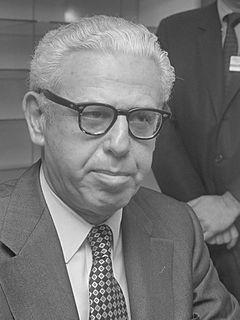A Quote by James F. Cooper
Commerce is entitled to a complete and efficient protection in all its legal rights, but the moment it presumes to control a country, or to substitute its fluctuating expedients for the high principles of natural justice that ought to lie at the root of every political system, it should be frowned on, and rebuked.
Related Quotes
The legal system doesn't work. Or more accurately, it doesn't work for anyone except those with the most resources. Not because the system is corrupt. I don't think our legal system (at the federal level, at least) is at all corrupt. I mean simply because the costs of our legal system are so astonishingly high that justice can practically never be done.
What, then, do they want a government for? Not to regulate commerce; not to educate the people; not to teach religion, not to administer charity; not to make roads and railways; but simply to defend the natural rights of man -- to protect person and property -- to prevent the aggressions of the powerful upon the weak -- in a word, to administer justice. This is the natural, the original, office of a government. It was not intended to do less: it ought not to be allowed to do more.
Monopolies are not justified by theory; they should be permitted only when justified by facts. If there is no solid basis for extending a certain monopoly protection, then we should not extend that protection. This does not mean that every copyright must prove its value initially. That would be a far too cumbersome system of control. But it does mean that every system or category of copyright or patent should prove its worth. Before the monopoly should be permitted, there must be reason to believe it will do some good -- for society, and not just for monopoly holders.
I think that, you know, state and local governments play a critical role in the protection of this country and the protection of certain systems like our mass transit system. And we share information daily with our state and local officials. I think it's one of the reasons that we are safer today and I have every confidence that, in developing its policies, that the New York transit authorities have considered the legal considerations they should be considering in making these kinds of decisions and in formulating this policy.
No system of criminal justice can, or should, survive if it comes to depend for its continued effectiveness on the citizens' abdication through unawareness of their constitutional rights. No system worth preserving should have to fear that if an accused is permitted to consult with a lawyer, he will become aware of, and exercise, these rights.
Among the features peculiar to the political system of the United States is the perfect equality of rights which it secures to every religious sect. [...] Equal laws protecting equal rights, are found as they ought to be presumed, the best guarantee of loyalty, and love of country; as well as best calculated to cherish that mutual respect and good will among citizens of every religious denomination which are necessary to social harmony and most favorable to the advancement of truth.
It's a mistake to think that poor people get the benefit from the welfare system. It's a total fraud. Most welfare go to the rich of this country: the military-industrial complex, the bankers, the foreign dictators, it's totally out of control... This idea that the government has services or goods that they can pass on is a complete farce. Governments have nothing. They can't create anything, they never have. All they can do is steal from one group and give it to another at the destruction of the principles of freedom, and we ought to challenge that concept.
There is no part of the administration of government that requires extensive information and a thorough knowledge of the principles of political economy, so much as the business of taxation. The man who understands those principles best will be least likely to resort to oppressive expedients, or sacrifice any particular class of citizens to the procurement of revenue. It might be demonstrated that the most productive system of finance will always be the least burdensome.
I was taught that justice is a right that every American should have. Also justice should be the goal of every American. I think that's what makes this country. To me, justice means the innocent should be found innocent. It means that those who do wrong should get their due punishment. Ultimately, it means fair treatment. So a call for justice shouldn't offend or disrespect anybody. A call for justice shouldn't warrant an apology.
When I was a prosecutor in Kansas City, my job was to fight for justice and safety for all citizens in my community. Equal access to justice under the law is an American value embedded in the fabric of our legal and political system - the idea that anybody, powerful or not, can have their day in court.





































